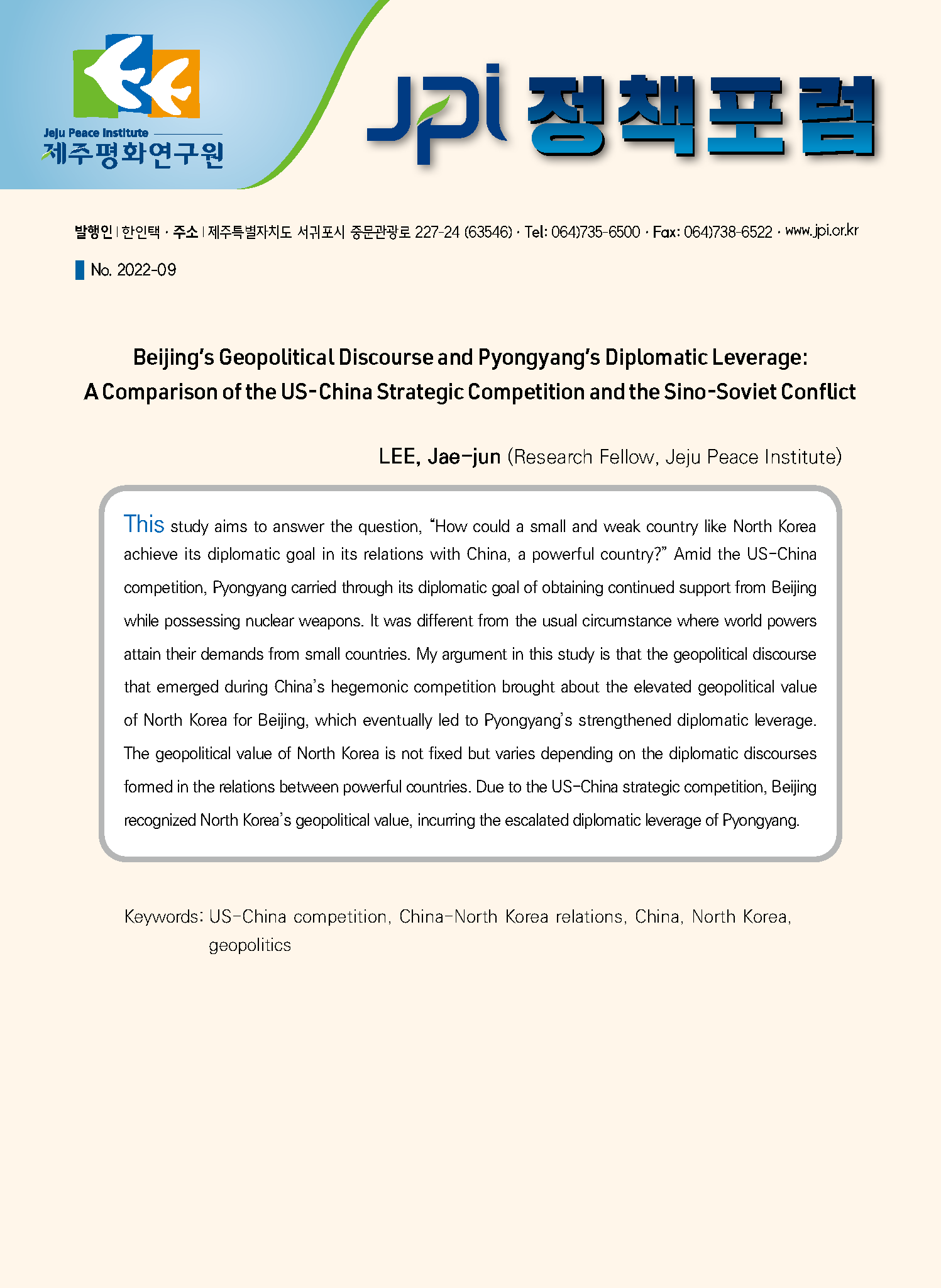This study aims to answer the question, “How could a small and weak country like North Korea achieve its diplomatic goal in its relations with China, a powerful country?” Amid the US-China competition, Pyongyang carried through its diplomatic goal of obtaining continued support from Beijing while possessing nuclear weapons. It was different from the usual circumstance where world powers attain their demands from small countries. My argument in this study is that the geopolitical discourse that emerged during China’s hegemonic competition brought about the elevated geopolitical value of North Korea for Beijing, which eventually led to Pyongyang’s strengthened diplomatic leverage. The geopolitical value of North Korea is not fixed but varies depending on the diplomatic discourses formed in the relations between powerful countries. Due to the US-China strategic competition, Beijing recognized North Korea’s geopolitical value, incurring the escalated diplomatic leverage of Pyongyang.
목차
I. Statement of the Problem
II. A Theoretical Framework for Analysis: Geopolitical Discourses
(1) Classical Geopolitics
(2) Critical Geopolitics
(3) Theories of Geopolitical Discourses
III. Pyongyang’s Diplomatic Strategy during the Sino-Soviet Conflict
(1) Before the Sino-Soviet Conflict
(2) After the Sino-Soviet Conflict
IV. Pyongyang’s Diplomatic Strategy during the US-China Competition
(1) US-China Competition and China’s Geopolitical Discourse
(2) Pyongyang’s Elevated Diplomatic Leverage over Beijing
V. Conclusion and Implications
